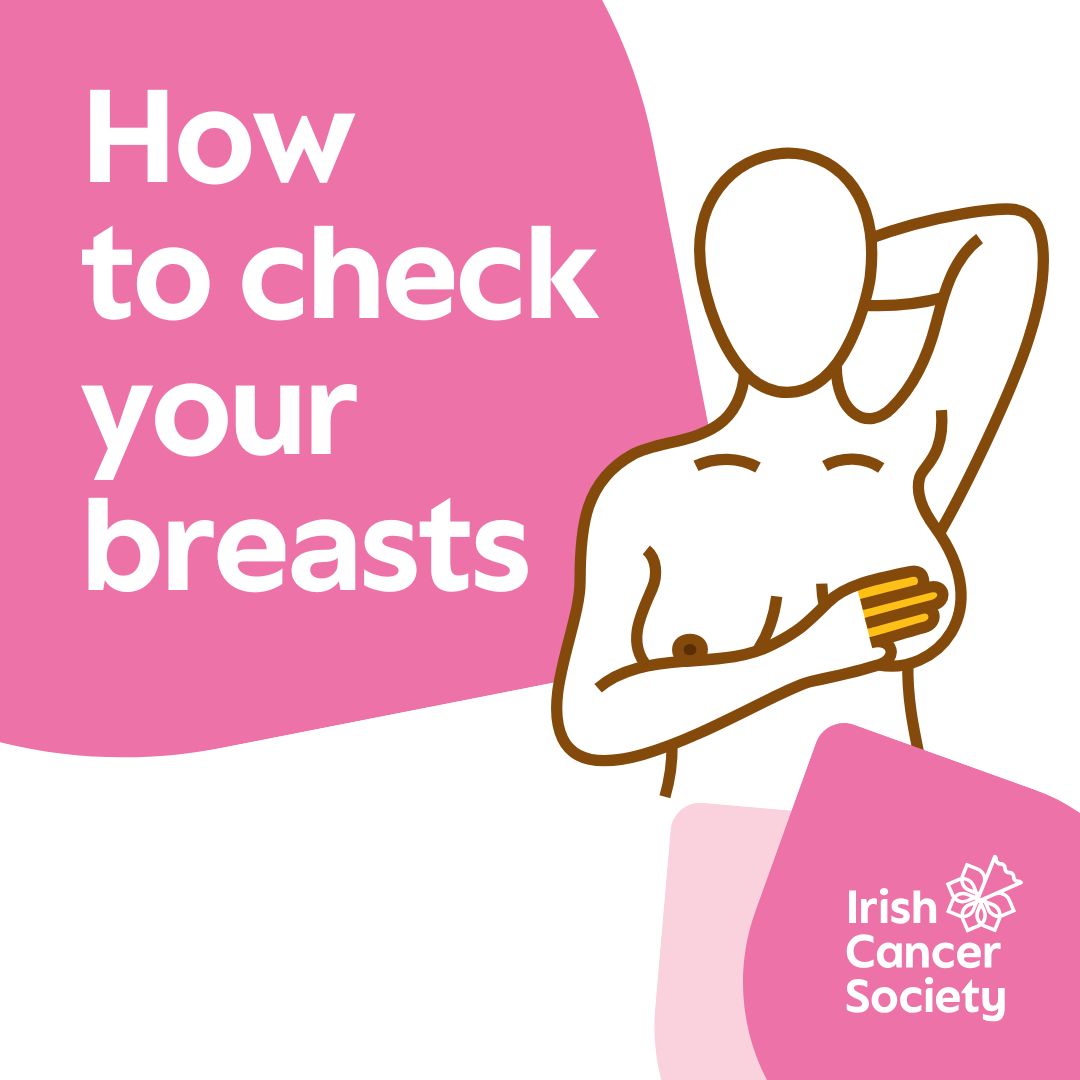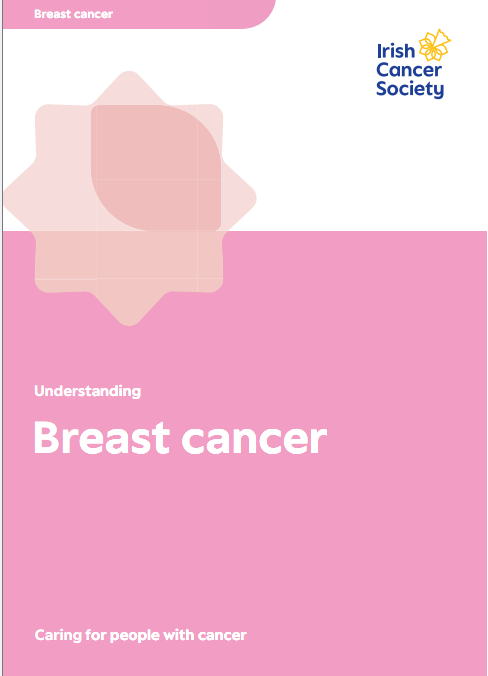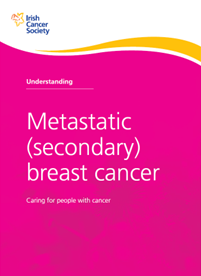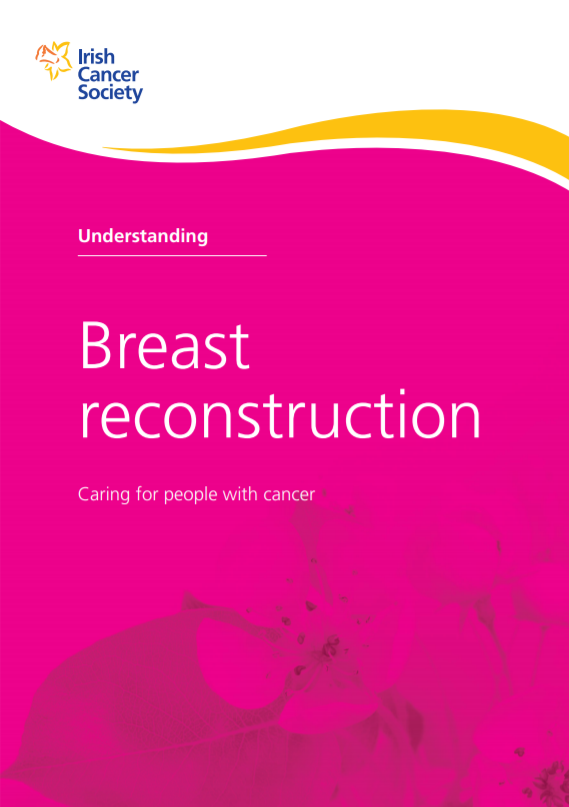Breast cancer
Each year in Ireland, almost 3,600 women and approximately 30 men are diagnosed with breast cancer. It is more common in women over 50, but it can affect younger women too.*
Signs and symptoms
Learn about the signs and symptoms of breast cancer. You are more likely to survive cancer if you find it at an earlier stage.
Treatments
There are a number of different treatments available for breast cancer. Your medical team will explain the best treatment options for you.

What is breast cancer?
Breast cancer is when cells in your breast change and grow in an abnormal way. A group of these cancer cells can form a tumour.
Breast cancer is a common cancer in Ireland. Almost 3,600 women and approximately 30 men are diagnosed with breast cancer each year.*
Types of breast cancer
There are many different types of breast cancer.
A short video about breast cancer, the signs and symptoms, types and treatments, and how to reduce your risk.
What are the breasts and what do they do?
Your breasts are made up of different types of tissue including fat, connective tissue and gland tissue. The gland tissue is divided into milk lobes and milk ducts. During and after pregnancy, milk is made and stored by the lobes and carried to the nipple by the ducts.
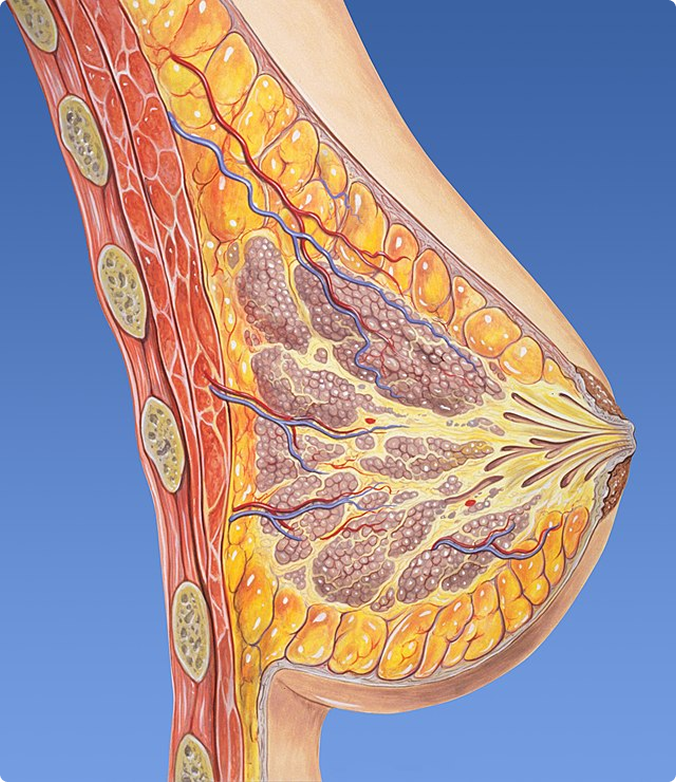
Your breasts are rarely the same size as each other. They may feel different at different times of the menstrual cycle, sometimes becoming lumpy just before your period. Under your skin, a ‘tail’ of breast tissue extends into your armpit (axilla).
The armpits also contain a collection of lymph nodes (glands) that make up part of the lymphatic system.
Online Breast Health Checker
What do you know about breast health?
Take this short quiz and find out more about staying healthy and the signs of breast cancer.
This is a tool provided by the Irish Cancer Society for information only it is not intended to replace a consultation with your doctor.
Risk and prevention of breast cancer
Having a risk factor doesn’t mean you will get cancer. Sometimes people with no risk factors get the disease.
Read more about risk factors and reducing your risk of breast cancer.
Early detection of breast cancer
Check your breasts and take part in the BreastCheck screening programme to help spot cancer early. If breast cancer is found early, it’s easier to treat and there’s a better chance of recovery.
National breast screening programme
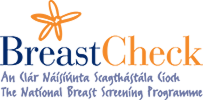
BreastCheck is the name of the national breast screening programme. It offers free breast screening to women, transgender, intersex and non-binary people age 50 to 69. You must be living in Ireland and have a PPS number.
For more information contact BreastCheck directly at Freephone 1800 45 45 55 or visit the BreastCheck website.
Note: We use gender-inclusive language. We sometimes use man/woman and male/female when they are needed to explain a person’s treatment and care – for example, talking about hormones or body parts – and when needed to describe research or statistics.
Medical content updated from our 'Understanding breast cancer' booklet (2024), reviewed by Prof Janice Walshe, Consultant Medical Oncologist and Clinical Professor, Prof Malcolm R. Kell, Consultant Surgeon and Clinical Professor, Dr Orla McCardle, Consultant Radiation Oncologist, Niamh Byrne, Breast Care Nurse and Teraze Toby, Daffodil Centre Nurse.
Publications about breast cancer
Talk to a Cancer Nurse

Support Line
Our Daffodil Centres

*The Irish Cancer Society uses the most up-to-date cancer statistics from the National Cancer Registry Ireland, available on www.ncri.ie
